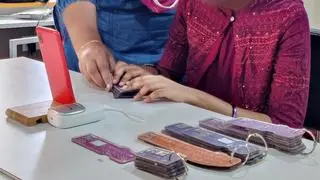“We will continue to do more of the same, which is very early-stage or seed-stage investing in businesses that are serving the masses or are serving large numbers of low-income population,” says Srikrishna Ramamoorthy, Partner, Unitus Seed Fund, a seed-stage venture fund based in Bengaluru.
Unitus is in the process of its raising a second fund of about ₹300 crore ($45-50 million), more than the double its first fund of ₹125 crore ($23 million), which has either been fully invested or committed. Unitus hopes to achieve first close of the fund in the middle of this year. As in the first fund, Unitus will raise the money from some high-profile wealthy individuals and family offices and use the money to invest in ventures at the seed stage. With the second fund, it will write larger cheques given that the businesses too require more capital at the seed stage itself now.
According to Srikrishna, Unitus will raise the second fund from both within India and outside, but thanks to the changed regulations will adopt a unified structure for this fund. “That structure has a lot of advantages and the money gets treated as domestic capital. It gives us the flexibility to structure our investments in many ways which are entrepreneur friendly,” he adds. The first fund was two-thirds offshore and one-third domestic capital, when it was a parallel structure.
Unitus made 23 investments from the first fund, of which 14 survived. The rest of them either had to be written off or Unitus recovered a little bit of its capital. Essentially they weren’t able to scale, points out Srikrishna. Ten of the 14 companies that survived have gone on to raise Series A funds.
“As a seed investor, we are coming in fairly early, when there is some proof of concept, ideally a pilot, but still a lot more validation that needs to happen before they can raise more capital,” he says. Unitus typically invests $100,000-500,000, the sweet spot being $250,000-3000,000, roughly ₹1.5-2.5 crore. That is the first cheque, but it reserves up to $1 million (₹6.5 crore) or slightly more for follow-on rounds. Unitus will participate in the follow-on rounds, but will not be the lead investor in them.
Unitus invested nearly half of the first fund in education and healthcare start-ups, and the balance in ventures in mobile internet, retail, on-demand type of businesses, which Srikrishna says are at “the intersection of impact and technology.”
Some of Unitus’ investments are BetterPlace, gocoop, DriveU, CueMath, Curiositi, Hippocampus, iStar, LabInApp, UrbanTailor and iBreastExam.
Focus areasAccording to him, Unitus will continue with the same approach with the second fund, with healthcare and education accounting for the bulk of the allocation. The VC firm is seeing interesting opportunities in financial technology, particularly ventures with a focus on financial inclusion. So, healthcare, education and fintech will account for a majority of its allocation in the second fund.
Also, with a higher fund now, Unitus hopes to invest in 30 companies out of the fund, with an increased initial ticket size – about $500,000 (₹3.4 crore). “Some of these businesses require larger amounts of capital in the seed round itself. For example, fintech we find seed rounds tend to be larger as some of them are capital intensive at the seed stage itself, either to hire high quality resources or to deploy into technology,” he says.
Unitus’ strategy is to stay invested in a venture for 4-6 years, putting in some money in the Series A and B stages and looking to exit at the Series C stage, but would be happy to exit its investment if the right opportunity arises. In the two exits it had from the first fund, it got returns of more than 10 times. “Our going in assumption is, do these companies have the ability to give us an 8x or 10x return over the 4-6 year timeframe. We need to have a strong theory that this company has the ability to offer that to us,” says Srikrishna, a Computer Science engineering graduate, who has been associated with start-ups and venture capital firms for more than two decades.
He reckons the second fund will last three-four years, similar to the first fund. Unitus will seek to build on the strong platform it built with the first fund.
Betting big on technologyA big decision driver for Unitus in the investments it makes, says Srikrishna, is whether the entrepreneur thinking technology because a lot of these opportunities need technology to scale. “That clearly plays a role for us. Even at the time we make the investment, if there is not a lot of technology, we make sure it is in place because at Series A you want it. A lot of these platform opportunities need technology to scale,” he adds.
On the fintech space, which Unitus will look to invest in with the second fund, Srikrishna says the space itself is getting crowded. There are enough and more credit focussed businesses that are marketplaces connecting the borrower to the lender and there are a number of opportunities in the payments space. However, Unitus does not want to look at that space as the payments businesses require deep pockets.
“Where we are seeing opportunities and the ones that we are actually interested in going after is just beyond credit platforms for non-credit products.
Platforms for savings, building other asset type opportunities. They could be related to savings, but could be around pensions, insurance, those types of product offerings which are suited to the masses and the low-income population. We are very excited about those kind of opportunities,” says Srikrishna and adds that there are also players using other mechanisms of data gathering to build credit scoring, which space too is interesting as the bulk of the population in the country doesn’t have a credit score.








Comments
Comments have to be in English, and in full sentences. They cannot be abusive or personal. Please abide by our community guidelines for posting your comments.
We have migrated to a new commenting platform. If you are already a registered user of TheHindu Businessline and logged in, you may continue to engage with our articles. If you do not have an account please register and login to post comments. Users can access their older comments by logging into their accounts on Vuukle.